MercoPress. South Atlantic News Agency
Tag: economy
-
Wednesday, December 19th 2018 - 09:20 UTC
Argentina officially in recession: economy sinks 3.5% in third quarter
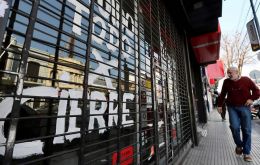
Argentina is in recession after its economy shrank by 3.5% during the third trimester of 2018, the state statistics bureau said on Tuesday. It was the second such shrinkage in a row after the economy shrank 4.0% in the second quarter, with respect to the same period a year ago.
-
Tuesday, December 11th 2018 - 08:59 UTC
Brazilian truckers block Rio/Sao Paulo highway, and ready to protest again

Truckers in Brazil on Monday partially blocked the main highway between Rio de Janeiro and Sao Paulo, police said, an action that could harm the nation’s economy should the protests spread.
-
Friday, December 7th 2018 - 09:45 UTC
Two more million Brazilians living in poverty: total reaches 54.8 million
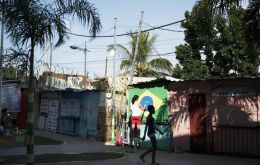
The number of people living in poverty in Brazil grew by two million last year in the wake of the country's worst recession on record, according to the government statistics bureau.
-
Wednesday, December 5th 2018 - 08:33 UTC
German auto maker rehiring confident of Brazil's recovery

Mercedes Benz's Brazil operation will hire some 600 contractors in 2019 on year-long contracts to work on commercial vehicles, adding to a workforce of 10,000, the company said on Tuesday.
-
Saturday, December 1st 2018 - 10:24 UTC
Brazilian economy accelerates in the third quarter
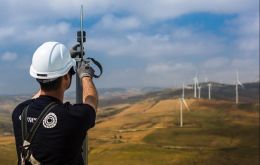
The Brazilian economy accelerated sharply in the third quarter as record-low interest rates and a one-off government-led boost helped it bounce back from the impact of a nationwide truckers’ strike. Gross domestic product rose 0.8% from the second quarter and 1.4% from the third quarter of 2017, government statistics agency IBGE said on Friday.
-
Thursday, November 29th 2018 - 08:31 UTC
Brazil withdraws its offer to host UN conference on climate change next year

Brazil has withdrawn its offer to host a large U.N. conference on climate change next year, the foreign ministry said on Wednesday, leading environmental groups to question the government's commitment to reducing carbon emissions.
-
Tuesday, November 27th 2018 - 09:27 UTC
IMF praises Argentina's reforms program and anticipates rebound of activity in 2019
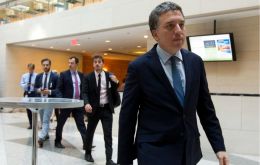
The International Monetary Fund has completed its second review of Argentina, the fund said on Monday, paving the way for the country to receive US$7.6 billion under a US$ 56.3 billion financing deal.
-
Wednesday, November 21st 2018 - 17:49 UTC
Aluminum producer Aluar profits 54% up thanks to devaluation of Argentine peso

The aluminum producer Aluar will distribute dividends among its shareholders for $ 2,884 billion (79.71 million US dollars) as a result of an increase in semiannual profits of 54.5%, the company reported to Argentina's stock exchange regulator Comisión Nacional de Valores (CNV), which was due mainly to the peso devaluation.
-
Friday, November 9th 2018 - 18:40 UTC
“Bolivianisation” of economy brings “shortage” of foreign currency - big business for black market
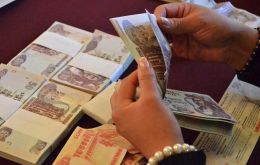
Evo Morales' government pushing to expand the “bolivianisation” of the country's economy has resulted in a “shortage” of foreign currency - particularly of US dollars - and to a subsequent growth of the exchange black market, it as repirted.
-
Friday, November 9th 2018 - 08:45 UTC
Federal Reserve leaves rate unchanged but December hike is expected

The Federal Reserve has left its key policy rate unchanged but signaled that it plans to keep responding to the strong U.S. economy with more interest rate hikes. The next rate increase is expected in December.
